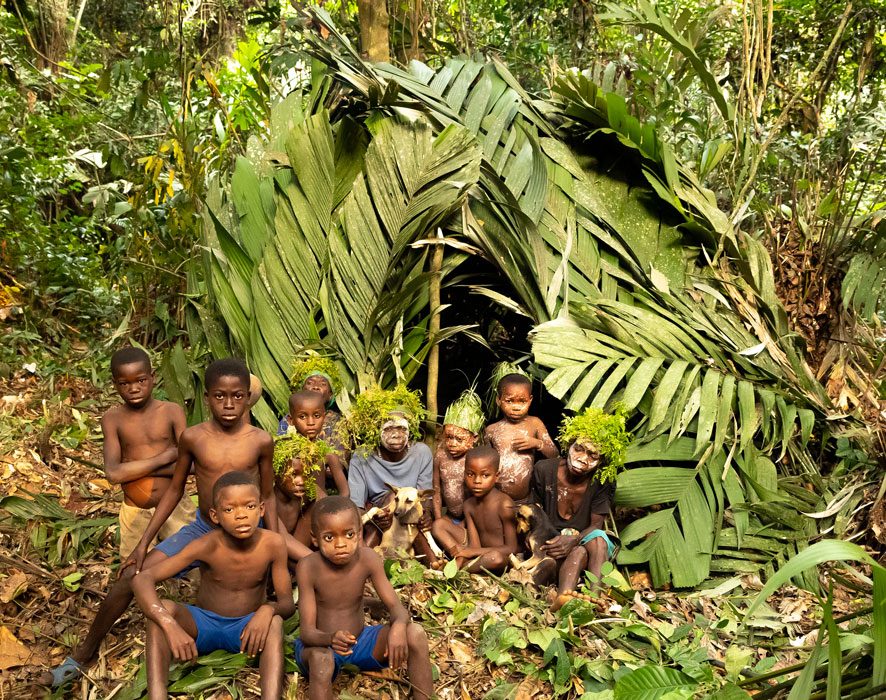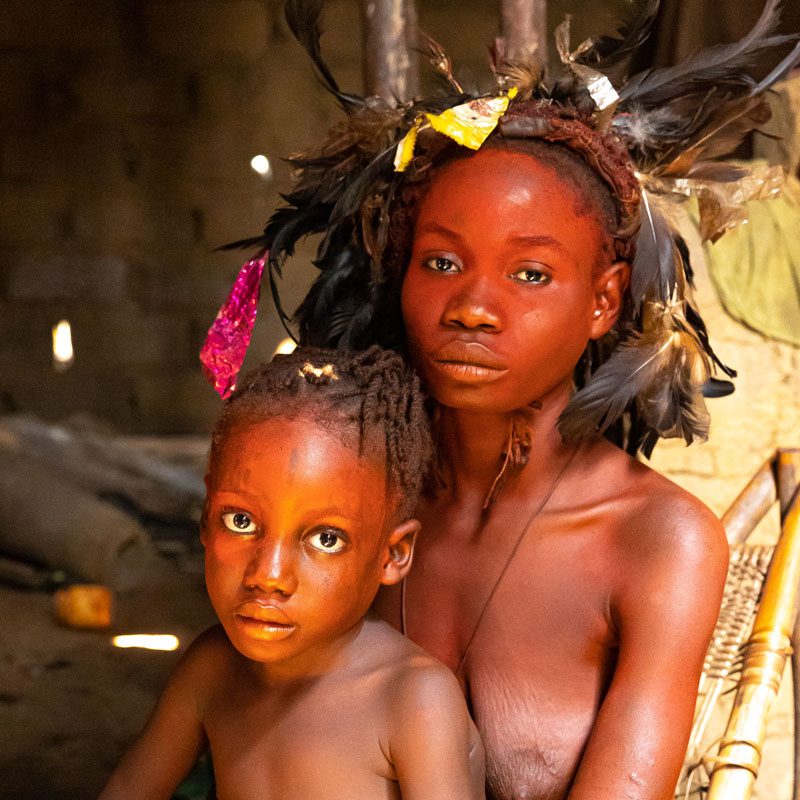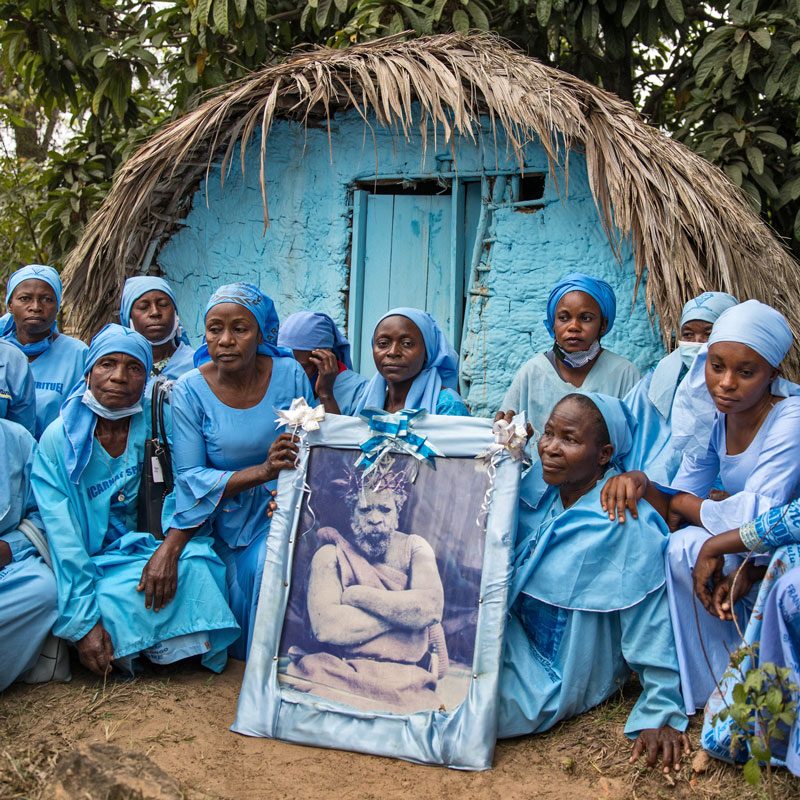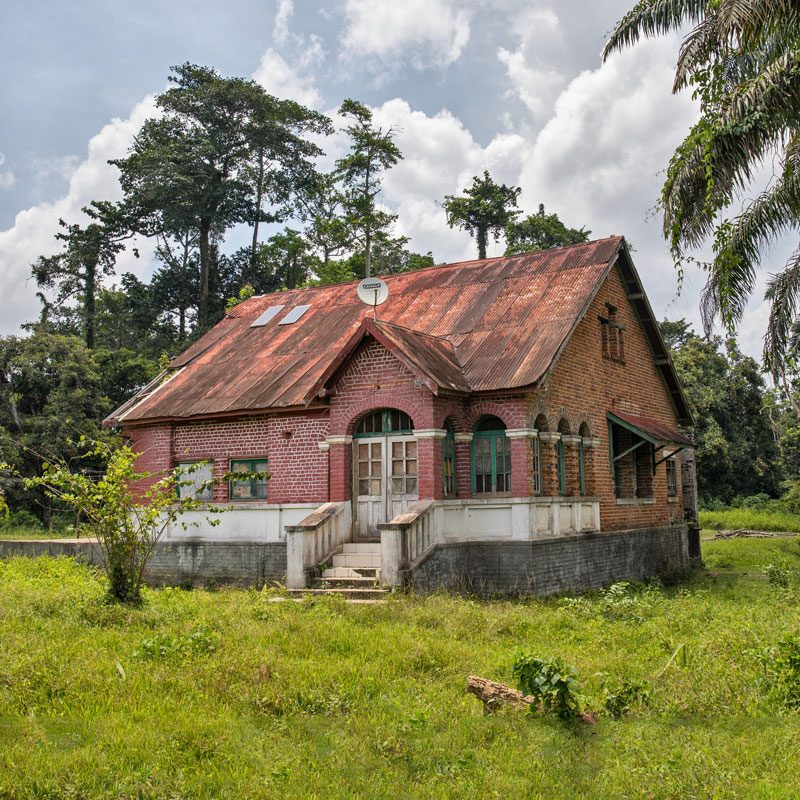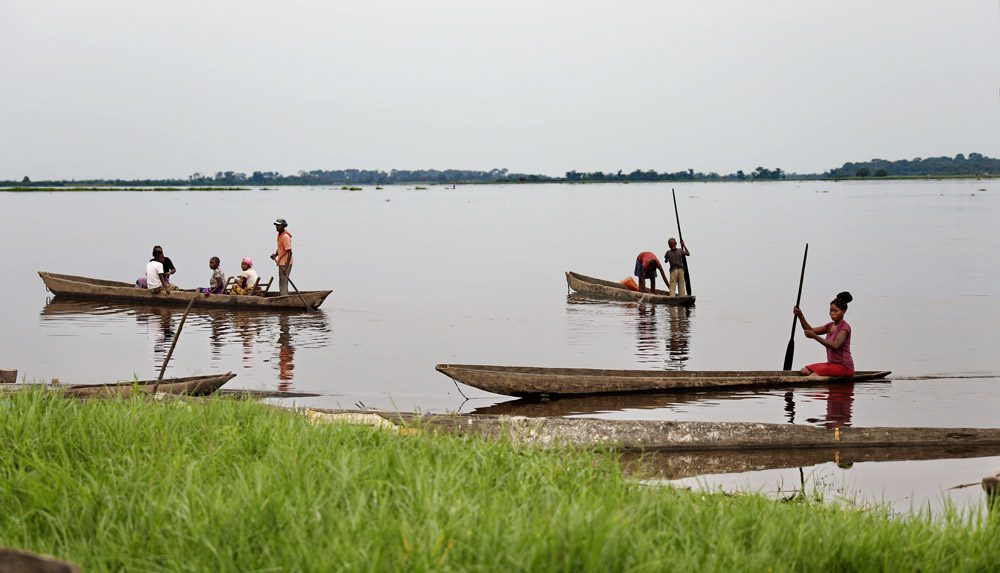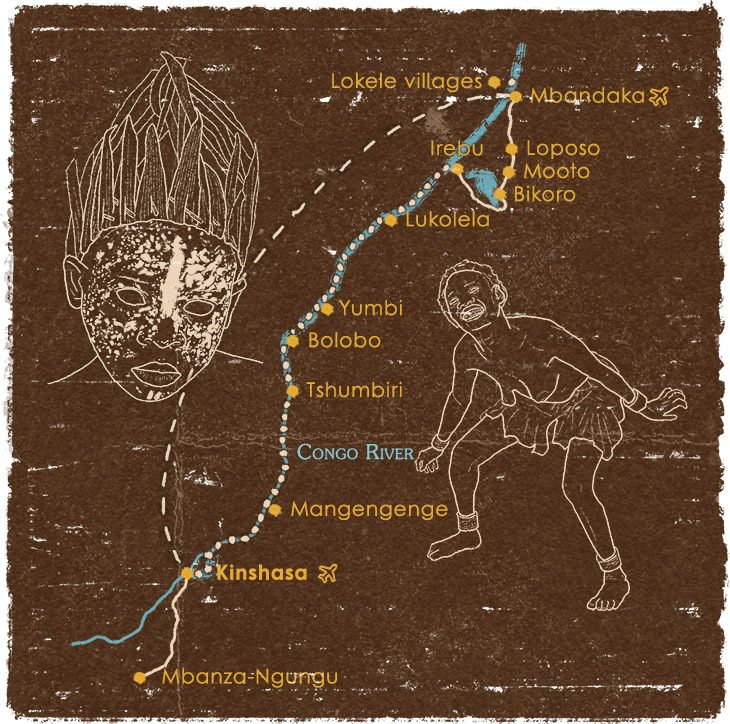Discover the highlights of this trip to the D. R. of the Congo
We will meet tribes from the Congo River
The purpose of this trip to the D. R. of the Congo is to visit some isolated communities of different tribes that live along the Congo River.
Lokele tribe
From Mbandaka, we will take a motor canoe to go up the Congo River to some villages of the lokele tribe . The Lokele are a Bantu-speaking ethnic group who are dedicated to fishing and had the tradition of tattooing their bodies. Nowadays, this practice can only be seen on the bodies of older women.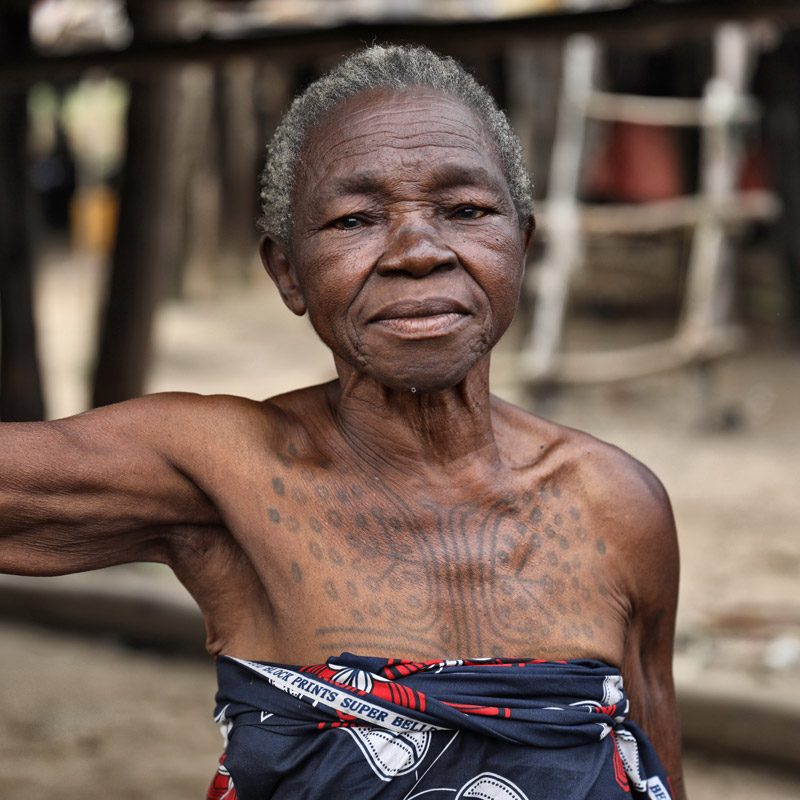

Ntomba tribe
This hunter-farmer Bantu ethnic group has a peculiar tradition that affects women who give birth to their first son or daughter. After becoming mothers for the first time, the young women of the Ntomba tribe become 'walé' (breastfeeding women) and begin a life of seclusion, in which they will spend several years caring exclusively for their children. You can read more about the Walé women in our blog post, 'The Walé women of the D.R. Congo'.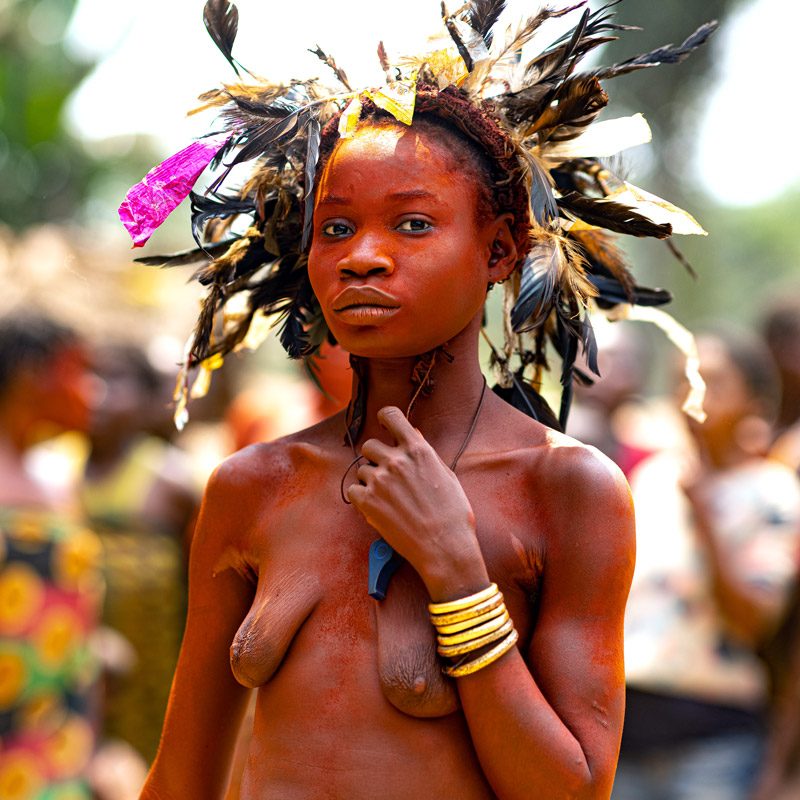

Batwa tribe
During this trip to the D. R. of the Congo, we will visit the camp of a nomadic group. The Batwa tribe depends on the agricultural products of the Mooto Bantu farmers and the latter depend on the animals they hunt and the medicinal plants that the Batwa collect. It is a total symbiosis between both peoples. We will learn aspects of the lives of these jungle people.
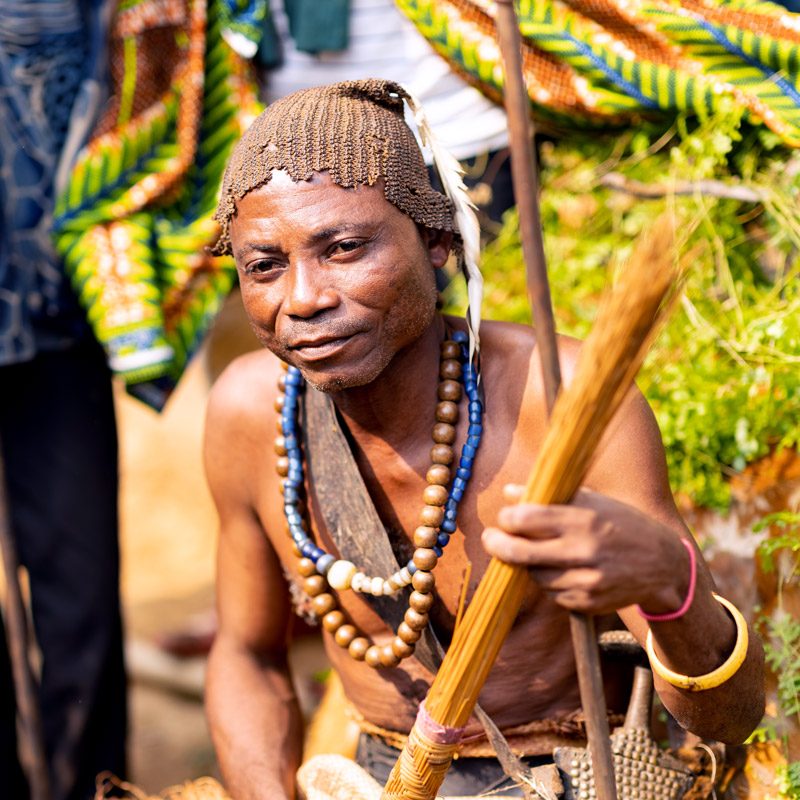
Banunu tribe
We will stop at the town of Yumbi, inhabited by the Banunu tribe. We will meet the local chief and organize some local ceremonies in order to learn about their culture.Bateke tribe
We will stop in Negabe to meet members of the Teke or Batch royal family. King Makoko signed a treaty with explorer Fernando de Brazza to annex his kingdom to the French colonial empire in the late 19th century. We will learn about the culture of the Bateke tribe and admire a traditional dance.Bakuba tribe
We will sail to the small Bakuba village of Mambutu to meet the local chief and experience Kuba culture. The Kuba or Bakuba tribe originates from the province of Kassai, in the south-central D. R. of the Congo. Due to the civil war, some Kuba emigrated near the capital and have tried to reproduce their world in a safer environment. After greeting the chief and the elders, we will experience a traditional dance and admire the Kuba fiber textiles.
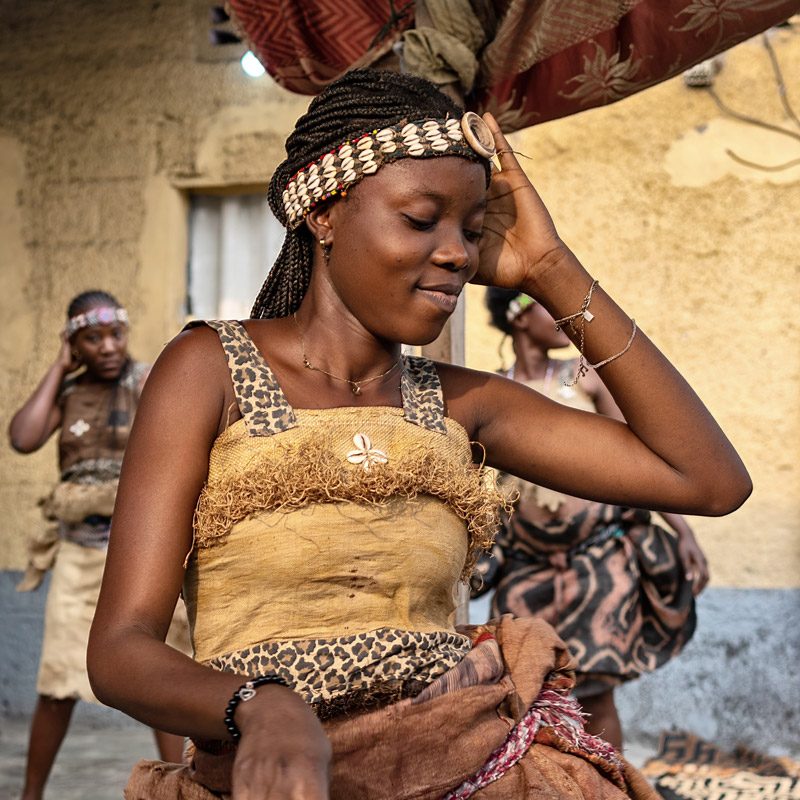
We will meet the members of the Tata Gonda sect
This Christian religious group is inspired by the philosophy of Samuel Kimbangu, a prophet who fought against European colonial oppression through a pan-African movement of Christian influence. In addition to their ethnographic and sociological interests, the followers of Tata Gonda have a unique aesthetic outlook, which makes the visit a unique experience.
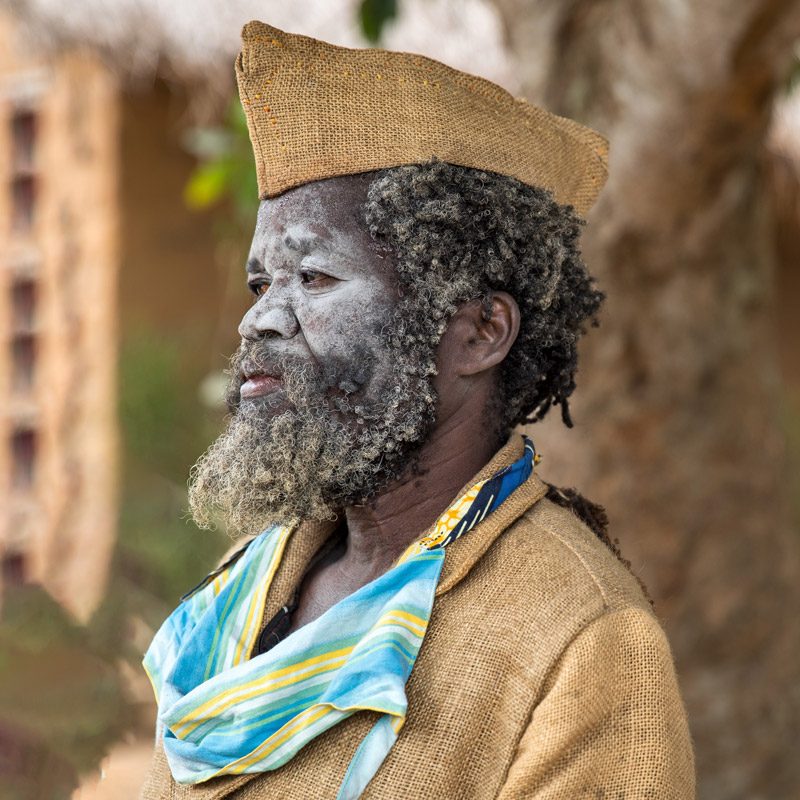
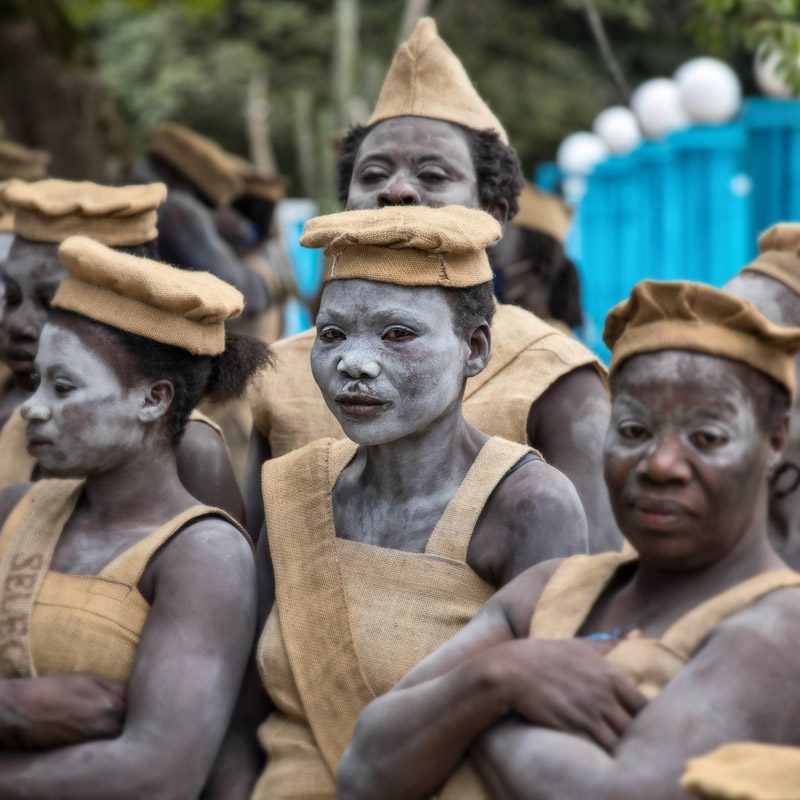
We will admire the remains of Belgian colonial architecture
In Kinshasha, we will explore on foot the remains of its Belgian past, ancient Leopoldville. We will visit the Forescom Art Deco building and nearby colonial buildings. Also, we will visit different places of interest in Mbandaka, such as the colonial post office, the botanical garden and some nearby colonial buildings. In addition, we will visit the old colonial laboratories of Mabali and the old railway station of Mbanza Ngungu.
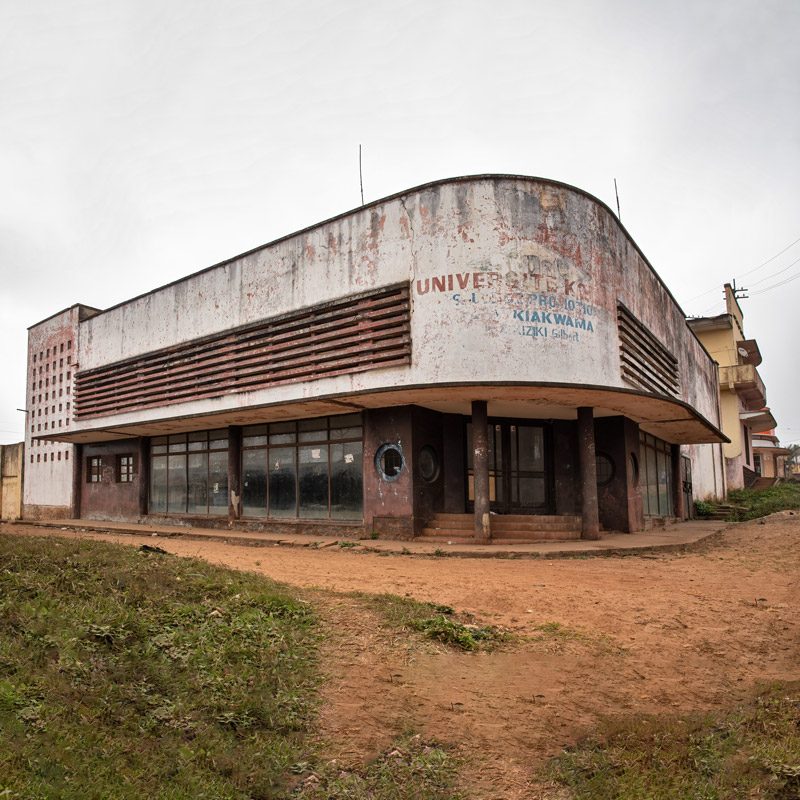
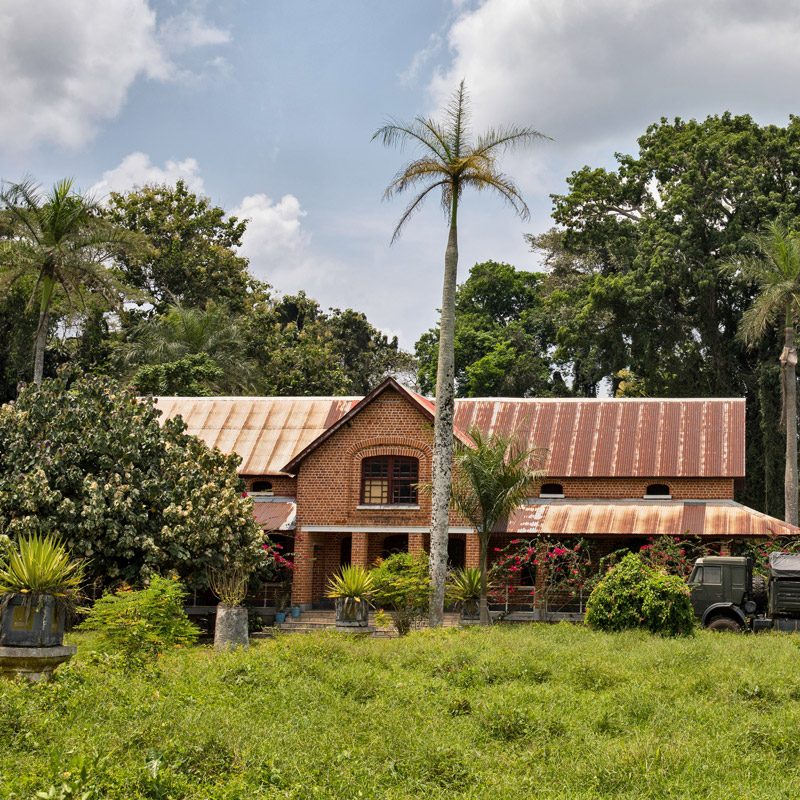
► Book your place now for this trip to the D. R. of the Congo
Click on the button below to easily reach the form to book your place for this ethnographic trip to the D. R. of the Congo.
